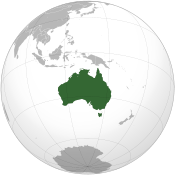Australian government prepares legislation to restrict travel of Australian fighters overseas
Friday, August 8, 2014
On Tuesday, the Australian Cabinet approved the "Counter Terrorism Foreign Fighters Bill" which is to be introduced into the Australian Parliament between August 26 and September 4. The bill follows after the "National Security Legislation Amendment Bill" which was introduced into the Parliament on July 16 and is now before the Australian Senate.
Attorney-General George Brandis mentioned at a joint press conference in Canberra on Tuesday, he has "been asked to develop — in consultation with relevant stakeholders, in particular, in the telecommunications sector — a system of mandatory data retention. That legislation has been approved in principle and is in development from today and is to be introduced into Parliament later in the year". As Tony Abbott mentioned, "the Government’s proposals to change 18C of the Racial Discrimination Act [...] are now off the table".
The proposed legislation would change the "Commonwealth Crimes Act", to include provisions currently found in the separate "Crimes (Foreign Incursions and Recruitment) Act". It would expand the definition of armed hostilities, to keep up-to-date with the current terrorist activities, from "The Terrorism, Incursions and Recruitment Act" of 1978. An important provisions of the proposed laws would make traveling to places with active terrorism an offence, as defined by the Minister for Foreign Affairs. With stated intention of "preserving national unity", Tony Abbott cancelled controversial changes to section 18C of the discrimination act which George Brandis had promoted.
"Not everyone who goes to the Middle East is a bad person", cautioned Labor Party leader Bill Shorten. "I think we have to be very careful in this complex situation about demonising Australians of Middle-Eastern backgrounds [...] So I think we need to be balanced in our approach, maintain our national security but also not try and blame everyone or tar everyone with the same brush."
"There's no question that Australia needs to be vigilant against terrorism but we must insist on ways to protect Australians from terrorism without overturning the fundamentals of our justice system", said Greens Senator Penny Wright. "Clearly we would need to see the detail of any legislation but as it's been described so far, it seems that this legislation could see Red Cross and other humanitarian workers in declared zones having to face court to prove they're not terrorists. This law could also see Australian journalists reporting from countries like Syria or Iraq presumed guilty of terrorism."
Penny Wright also warned against removing the legislation's sunset clause. "The Australian Greens would be very concerned about any legislation that further restricts civil liberties and removes scrutiny and oversight. There's a very important balance to strike between security and freedoms, and we would not want to see very legitimate security concerns be used to permanently erode human rights."
There has been a significant increase in Australian Security Intelligence Organisation (ASIO) cancellations of Australian passports over the last year. To make it easier for ASIO to complete security assessment of suspected individuals, the government-announced proposals include the power to temporarily suspend an Australian passport, or foreign passport of a dual national, on ASIO request, a change recommended by the Independent National Security Legislation Monitor.
Related news
- "Australian Government proposes amendments to Racial Discrimination Act" — Wikinews, March 28, 2014
Sister links
Sources
- Sangeetha Pilai. "Foreign fighter passports and prosecutions in government’s sights" — The Conversation (website), August 6, 2014
- AAP. "Govt to tighten anti-terrorism laws" — The Australian, August 5, 2014
- Tony Abbott, Julie Bishop and George Brandis. "Joint Press Conference, Canberra" — Prime Minister of Australia, August 5, 2014
- "Government Considering Reversing The Onus Of Proof For New Anti Terrorism Laws" — timebase.com.au, August 4, 2014
- Bill Shorten and Journalist. "Doorstop: Geelong" — Australian Labor Party, August 1, 2014
- Penny Wright. "Brandis presumption of terror guilt could trap journalists, aid workers" — Australian Greens, August 1, 2014
- Rebecca Ananian-Welsh. "National security bill gives ASIO more powers and a tighter gag" — The Conversation (website), July 17, 2014
- "National Security Legislation Amendment Bill (No. 1) 2014" — Parliament of Australia, July 16, 2014
- "Sitting Calendar" — Parliament of Australia, November 25, 2013
- "Crimes (Foreign Incursions and Recruitment) Act 1978" — Commonwealth legislation, December 20, 2005

